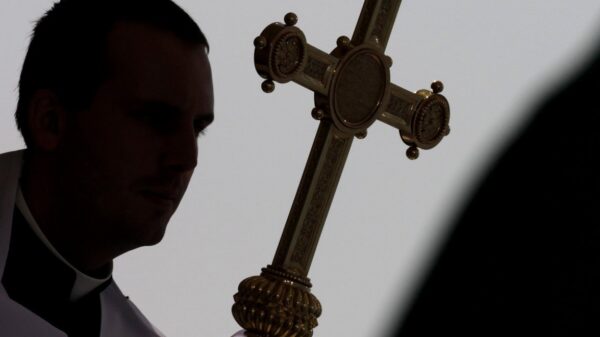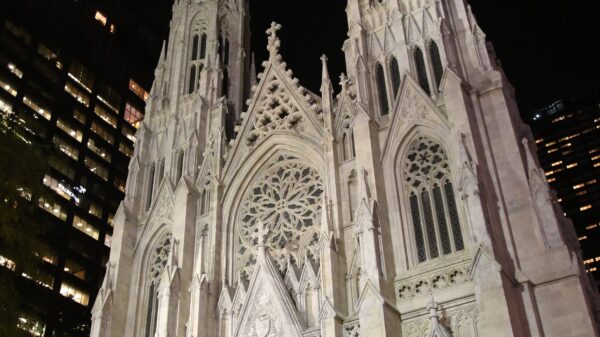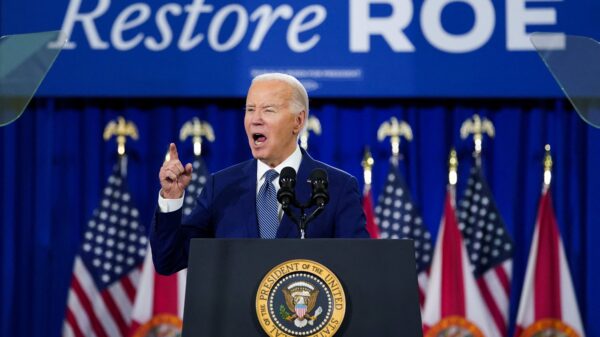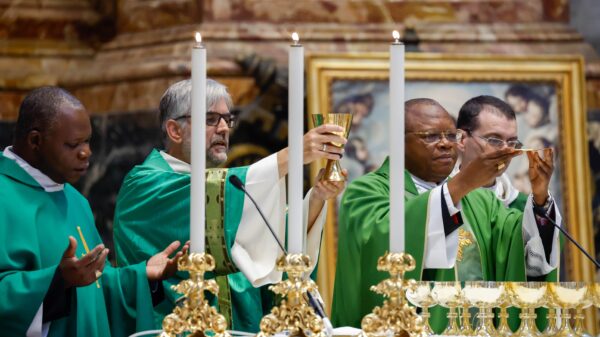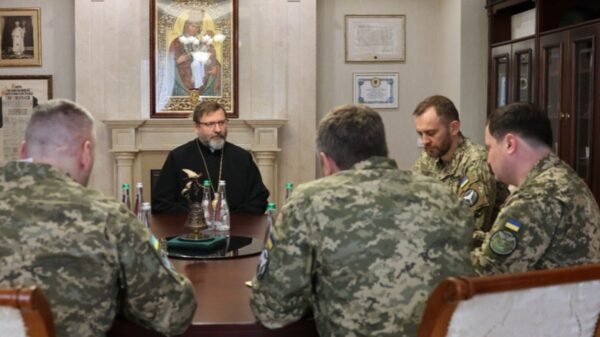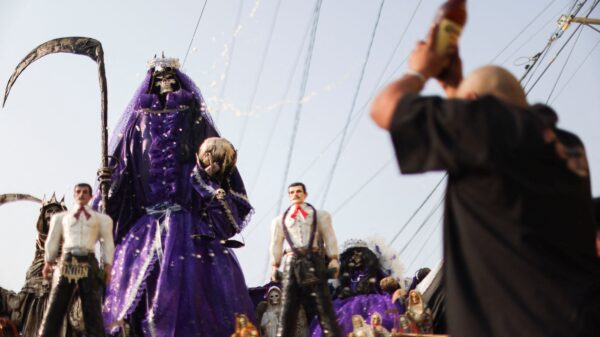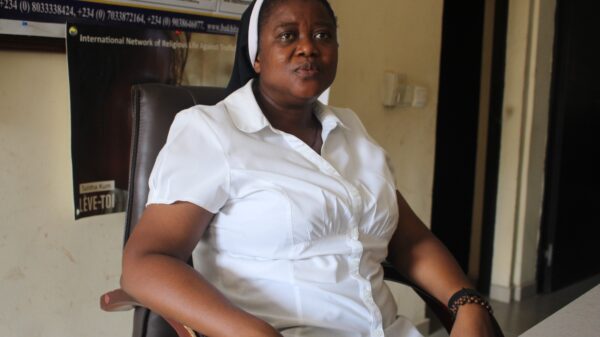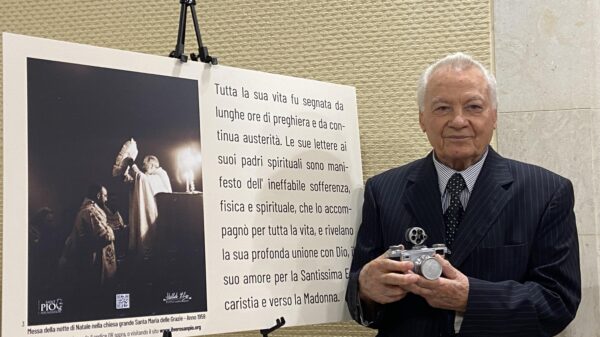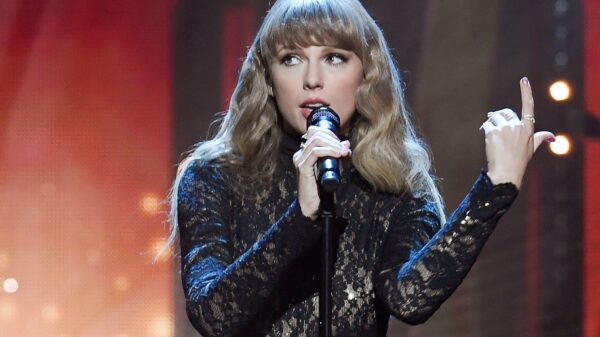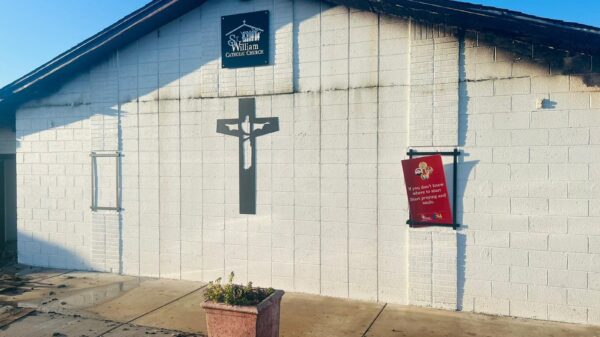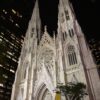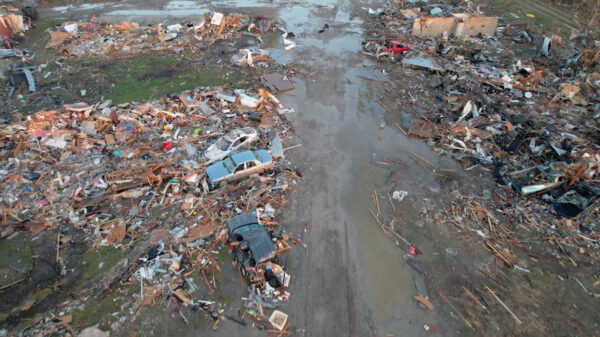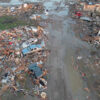(OSV News) — Catholic university professor Samuel Shephard suggests that Catholics can bring a unique viewpoint to Earth Day, celebrated April 22, because “as Catholics, we can understand we’re doing that as stewards of creation.”
“When we get involved in Earth Day, we can do the same kind of things that everyone else is doing — they’re talking about, this year, reducing use of plastics; how we think about ethical clothes purchasing; that sort of thing,” Shephard, who teaches biology at Ave Maria University in Ave Maria, Florida, told OSV News. But “when we become stewards of creation, we participate in his loving plan for salvation. So we do the same sort of practical things — but we do it in a kind of transcendent context.”
Earth Day, now a day when the world calls for environmental change and the protection of the planet, was originally envisioned as a college campus teach-in by its founder, Sen. Gaylord Nelson, D-Wis.
At the time of the inaugural Earth Day, celebrated on April 22, 1970, U.S. skylines were thick with smog, gasoline contained dangerous levels of lead, and two-thirds of the country’s lakes, rivers, and coastal waters were declared unsafe for either fishing or swimming. About 20 million Americans expressed the need to do something about it on that first Earth Day.
Within the same year, the Environmental Protection Agency was established by a Republican president, Richard M. Nixon, who earlier declared, “Clean air, clean water, open spaces — these should once again be the birthright of every American.”
While 72% of U.S. Catholics recently surveyed by Georgetown University’s Center for Applied Research in the Apostolate believe “environmental justice is a legitimate issue that needs urgent attention,” only one-third are apparently aware of Pope Francis’ landmark 2015 environmental encyclical, “Laudato Si’.”
Pew Research Center also reports 41% of regular Mass attendees in 2022 said there is no discussion about climate change in their parish.
Whether the reason is discomfort with the perceived political activism of the environmental movement, or concerns about possible over-divinization of nature, those numbers indicate something of a disconnect between the Catholic Church’s long-standing “care for creation” teaching and the practical ecological activity of American Catholics.
For Shephard at Ave Maria, it’s time that changed. A contribution to this change is a robust, hands-on, university-level course of instruction designed to equip students with the tools they need to be effective everyday environmental stewards.
“The new minor in Agriculture and Catholic Environmental Stewardship (ACES) will draw from both existing curriculum and include two new focused classes that will explore technical, theoretical and highly practical aspects of sustainable agriculture and environmental stewardship,” Ave Maria announced in a news release April 9.
Ave Maria University was established in 2003 as a Catholic university and today boasts 1,270 students, who can choose from about 66 majors and minors, and have access to seven daily Masses and 33 faith-based clubs on campus.
Shephard explained what the new ACES minor will include, in addition to ecology, biology and environmental science.
“There’s going to be a class in theology, dealing with Laudato Si’ and all these aspects of what it is to be human and care for nature,” he said. “There’s going to be a class on small business, because I want people to be able to start small enterprises, perhaps growing sustainable food or making ethical clothing.”
“But,” he added, “what I’m really excited about is that, within that context, we’re actually starting a farm here in Ave Maria. We’ve got 55 acres — and it’s going to be partly a community endeavor, and partly a university process.”
Ten acres of the plot will be a “permaculture” organic farm with vegetables and eventually animals. Permaculture refers to the concept of utilizing land, resources, people and the environment in a way that doesn’t produce any waste.
“It’s going to (be) as absolutely natural and holistic and sustainable as we can manage,” said Shephard. “And so the students in the minor will be able to spend quite a lot of time outside, literally digging and growing vegetables and keeping hens, and then maybe selling their produce in the local farmer’s market. I really hope it’s going to be very hands-on,” he shared. “People so far have got quite inspired — and I think that’s what’s attracting them.”
Shephard’s own environmental journey took him from his birthplace on a small island in the northwest of Scotland to the west coast of Ireland’s commercial fishing industry, where he fished for a time with his wife’s family.
Shephard became keenly aware of environmental issues during this time, which motivated him to earn both a graduate degree and a doctorate in fisheries management. The last two decades of his career have been spent working around the world on sustainability issues.
“As a secular environmentalist, I always felt a bit despairing; everything seemed like it was already lost,” Shephard recalled. “But then when I became a Catholic” — he was 23 — “I really felt a lot more hope, and a lot more optimism and inspiration.”
Shephard proposes a sort of “theology of ecology,” emphasizing Catholicism’s rich care for creation tradition.
“The Catholic Church has a really distinct and very beautiful understanding of care for nature,” he said. “I think secular environmentalism just says we’re kind of part of nature; looking after nature — mainly for utilitarian reasons. The church says that we’re, yes, part of nature — but we’re also set apart by intellect and will, and by the fact that we’re made in the image and likeness of God. So that kind of places us right in the middle, but also gives us a unique, transcendent role.”
“Which is quite a terrifying responsibility, isn’t it, in a way?” he reflected. “We can’t just drop that,” Shephard cautioned.
“But I love this idea of creation; I love this idea of being part of God’s plan. It kind of picks us up into something much bigger than ourselves — and points all of the things we do towards a kind of ultimate end point,” he added.
“So we’re not just doing this because we’re flying through space with a set of resources that we have to conserve for the future, but we’re actually headed towards an ultimate destination in heaven; the fulfillment of God’s plan for the human person,” Shephard emphasized. “It’s about as non-trivial as it could get.”
Shephard stressed that Catholic engagement with their role as stewards of creation brings extended value to Earth Day and beyond. He expanded on two foundational ideas.
One is to look to Catholics within the church who aren’t that interested in environmental issues, and say, “We can’t — for reasons of our political alignment, or any other thing — pretend that we don’t have a responsibility here, or/and pretend that this doesn’t matter,” he explained.
“This is absolutely part of what it is to be a Catholic — to take care of the poor; to take care of creation. It’s a matter of justice — of giving due to God, and to our neighbor,” he said.
The other, Shephard said, “is to look to the world and say, our (Catholic) understanding of what nature is, and what the human person is, is actually really powerful — and it can really help as perhaps a uniquely valuable mode of understanding environmental problems and responding to them in a really humanitarian, person-focused, and loving way.”
Pope Francis’ environmental focus — but also that of St. John Paul II and Pope Benedict XVI — has, in Shephard’s view, elevated the global environmental conversation.
“I think we have something incredible to offer,” he said. “But it has, until Laudato Si’, gone a little bit unnoticed.”
Reflecting on his pre-Catholic ecological awareness, Shephard is quick to praise the secular environmentalists he met — “They’re really smart, and really motivated,” he said — but his Catholic faith in Jesus Christ now urges him to share his expanded perspective.
“I want to say, ‘Well look — I think what you’re doing is great,'” said Shephard. “‘But perhaps it can be even better if you understand that what you’re doing is God’s work.'”
Kimberley Heatherington writes for OSV News from Virginia.


